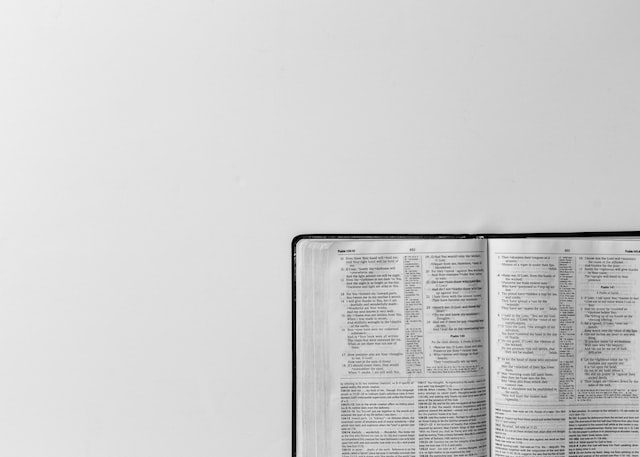
Throughout the summer, my wife — The Reverend Canon Natalie Van Kirk — and I have been preaching a series on the subject of doubt. We have been addressing both the subject of doubt itself and the questions that are often the source of trying questions for Christians, as well as others. Obviously, none of these articles are exhaustive but we hope that they will be a helpful stimulus to your own thinking.
Frederick writes:
Charlie was the only student I could remember in years of teaching who came to school in a wheelchair. He was in his early 20s and he had Cerebral Palsy as a child.
By the time that I met him, he had already been through surgery to deal with long years of sitting in his chair. And — as is so often the case for those with CP — he could not completely control his motor functions, which made it difficult to face people as he talked. But none of this impinged on his sense of calling or diminished his enthusiasm for his work.
Like most seminarians, he was also actively engaged in the life of a local church. One Sunday an older member of the congregation reached down, put his arm around him and said, “Charlie, I am praying for you to get out of this wheelchair.”
Charlie – mustering more maturity than I think that I could have managed under the same circumstances – looked at him and responded, “I know you mean well by saying that, but if that is all God has in mind for me, I would rather die now.”
I’ve often reflected on Charlie’s experience over the years, because I think that his conversation highlights the fundamental divide in the way that people think about prayer and its purposes.
To put it as clearly as I possibly can, the difference, I think, is this: Some people – like Charlie’s friend – assume that the central purpose of prayer is to address human need. We pray for God to “fix things” — to end uncertainty, to give us guidance. Its basic language is the language of petition and intercession — requests for things and prayers on behalf of others.
The validity and value of this kind of prayer also hinges on getting a response. Generally speaking, people evaluate prayer of this kind on what is called its “efficacy” or on the number and frequency of the answers that they get.
Practically speaking, when people think about prayer in this way, they also arrive at a variety of other conclusions. For example, when Charlie’s friend told him that he was praying for him to get out of his wheelchair, he was interceding on Charlie’s behalf.
If one day Charlie got up and walked away from his chair, his friend would have simply celebrated the result as a miracle. But if nothing happened, he may have arrived at a variety of other conclusions, long before he completely rejected the power of prayer. Those who think about prayer in this way suggest that – if one asks with faith – God’s answer will be “yes, no, or not yet”. Unless – of course- you asked for the wrong thing and made the mistake of “testing God”, in which case you couldn’t expect an answer at all.
Others, like Charlie, believe that the central purpose of prayer is to discover the ways in which we can be available to the purposes of God in the world. I realize that I am reading a bit into Charlie’s motives but I think it is pretty clear that he was thinking about prayer in this fashion.
Clearly, he felt that his physical limitations were not defining for his life or his relationship with God. He didn’t need to be freed from his chair in order to be available for God’s work in the world. He needed to know what was next for him.
Better acquainted with human frailty than many of us are at an early age, I suspect that Charlie also thought that prayer could not possibly be just about fixing our bodies and improving our circumstances.
After all, we all suffer a variety of illnesses, and limitations. We all age and die. And the Christian tradition doesn’t teach that we will escape these challenges. It teaches that sin, illness, and death will not have the last word.
What do we do with such different interpretations of the purpose of prayer? One way would be to assert that prayer is all about one thing or the other – that either human need or the purposes of God is the all-in-all of prayer. But to do that ignores the fact that both kinds of prayer can be found in Scripture.
The Psalms, for example, are filled with prayers prayed in times of illness and crisis. And Paul talks about the overriding importance of being “in Christ” and available to the purposes of God, regardless of life’s circumstances.
To further complicate the picture, human need and the purposes of God are not always mutually exclusive. If God’s purpose is our healing and restoration, then the lines between those two kinds of prayer slip and blur. And one might reasonably argue that being healthy and at peace maximizes our availability to God’s work in the world.
Since I met him, for example, Charlie has married, he has become a father, and with his wife they have had a significant ministry, both as Methodist pastors. So, one could argue, wouldn’t that have all been easier, if Charlie had never suffered the ravages of cerebral palsy?
Maybe. But here is just one more thread in the complexity of it all: Charlie’s and his wife’s ministry is to the disabled. So, it seems to me that, in spite of his physical challenges and in response to his challenges, Charlie got an answer to the very prayer he told his friend he would rather have answered.
So, how and why do we pray? The answer, I think lies in the most poignant and telling prayer in the entire Bible: Jesus’ prayer in the garden of Gethsemane: “My Father, if it be possible, let this cup pass from me; nevertheless, not as I will, but as you will.” (Mt 26:39)
Jesus is obviously experiencing enormous stress and peril. The context makes it clear that he feels that peril — emotionally, spiritually, and physically. And, like anyone faced with dying — and, in this case, with execution — he freely, passionately expresses his desire to be delivered. But he also places himself back in God’s hands and prioritizes the purposes of God: “Nevertheless, not as I will, but as you will.”
It is this prayer and its place in the life, death, and resurrection of Jesus that helps us find an answer to our deepest questions about prayer:
One, our approach to prayer should not be magical or utilitarian. Prayer is not a mechanism for manipulating reality or a device for getting a gift from God. And they should not be our motive for praying or our metric for evaluating the importance of prayer.
Two, our calling is to follow Christ on a journey into healing and to aid others in making that same journey. That remains our calling, in this life and in the life to come. It is not diminished by what happens to us or the limitations that we encounter. And our prayer should be, always and everywhere, “nevertheless, not as I will, but as you will.” That prayer does not allude to some foreordained destiny. It is, instead, a willingness to follow and serve God in any and every circumstance.
Three, as that openness suggests, prayer is both a means of sustaining intimacy with God and it is also the fruit of that intimacy. John’s Gospel records that Jesus spoke of his being in the Father and the Father being in him, and he also promised that this same intimacy would be his gift to his disciples. Prayer is the language of that relationship and that relationship is also the reason for praying.
Four, this does not mean that we should not be praying — praying for healing, for people, or for specific situations. Jesus offered that kind of prayer, and his prayers changed lives. They also served as a conduit for God’s power, and — as God’s Son — he himself answered many of those prayers.
He was so in tune with the purposes of God that there were times when he could see the deeper needs of people that lay behind the things that they asked him for. And – with that in mind – I believe that not only can we expect our prayers to change the lives of others, I believe that those prayers will change us, as well. When we intercede for others, we cultivate sensitivity to the needs of others, we sharpen our ability to see the spiritual dimensions of life, and we learn to listen for the voice of God.
But, because prayer is so much a part of our relationship with God, we should also avoid using language that suggests that the efficacy of our prayers lies alone in the answers to prayer that we receive. This kind of language not only reverts to magical and utilitarian assumptions about prayer, it ignores the fact that the conversations and intimacy that we have with God are the gift. And it runs the risk of suggesting that the evidence of our intimacy with God lies in the things that happen to us.
We pray our prayers as Jesus followers and, as such, we share in his life. That life was filled with people who benefited from his words and his touch. It was also filled with people who fled from him and avoided him. His was a life, filled with high moments and moments of profound sadness, friendship and abandonment, joy and pain. Prayers that were answered and prayers that went unanswered. And in his moments of greatest distress and death itself, he conquered the grave.
We should remember this when we talk about our own experiences. Some of us outlive our parents. Others, painfully, outlive their children. Younger siblings die long before they should. Accidents and illness claim the lives of some and leave others behind. Some people prosper and others struggle with crushing poverty. None of these differences should be an occasion to claim that we are privileged, blessed, or our prayers heard. And we can do no more spiritual damage to our sisters and brothers, than to suggest that in their moments of greatest desperation, are the measure of God’s love for them.
I realize that we may be giving voice to our indebtedness to God when we celebrate our escape from injury, illness, or evil, and we can certainly give thanks. But we should be careful not to suggest that we are the beneficiaries of God’s grace and others are not.
Such claims are born of magical assumptions about prayer. They forget the experience of Jesus, who himself expressed a sense of profound loneliness and they do enormous harm.
We all live in a broken world where the intimations of God’s love and grace show through our lives the way that sunlight breaks through cloud cover. We will all lift prayers that are followed by what appears to be deliverance. We will all linger in places when God seems to be deaf to our pain. And we all face that moment, when all that we have loved and cherished will slip from our grasp.
What we can say with certainty – if we pray without ceasing – is that we are always and everywhere in God’s hands. And that, my friends, is both the beginning and the end of prayer, its promise and its purpose.
Amen.













